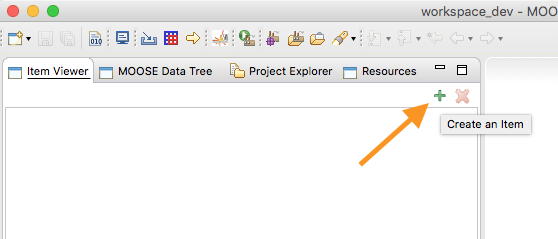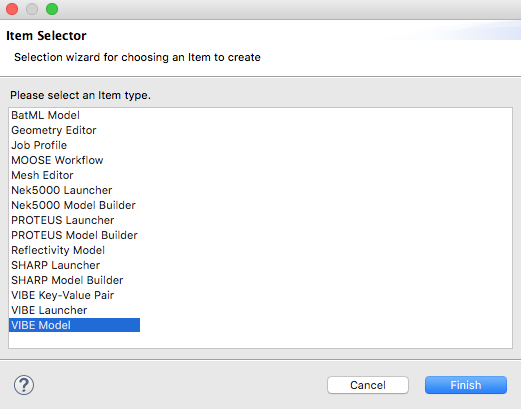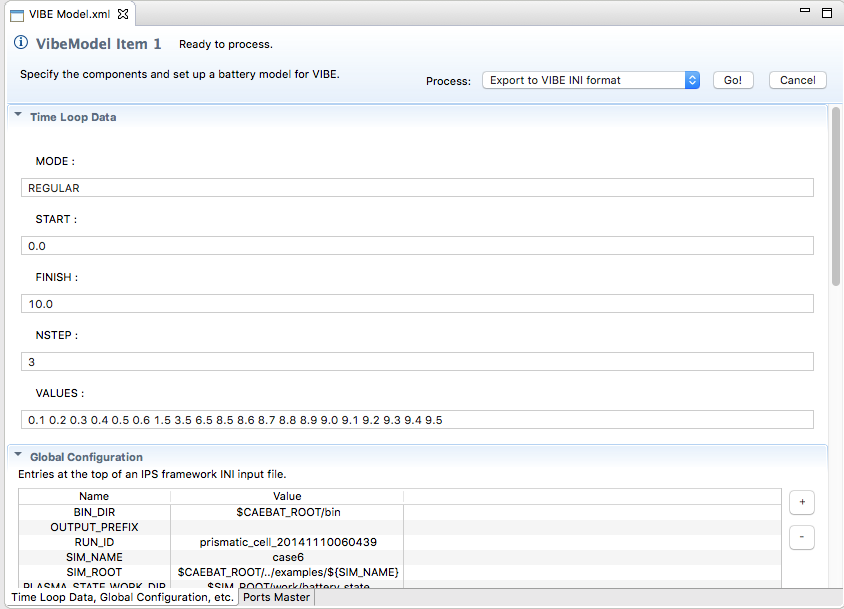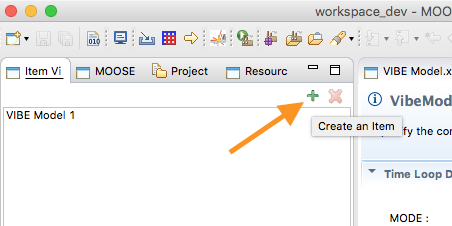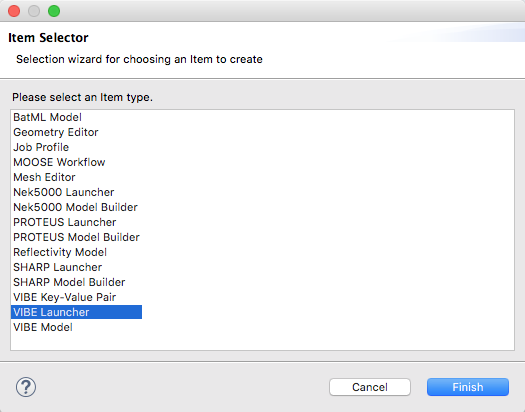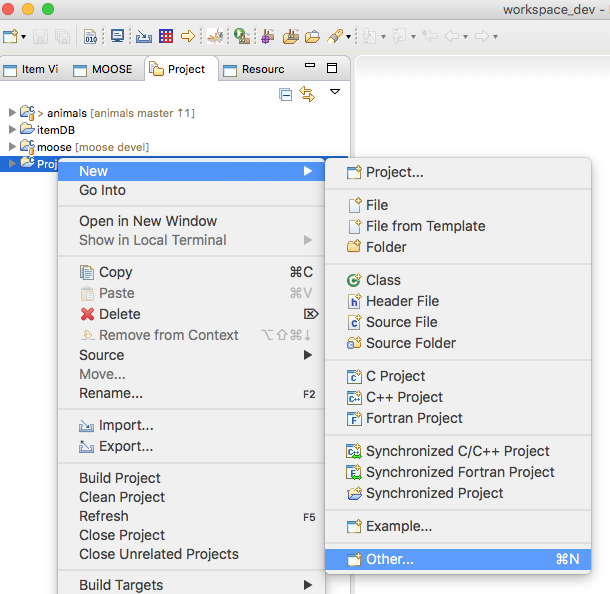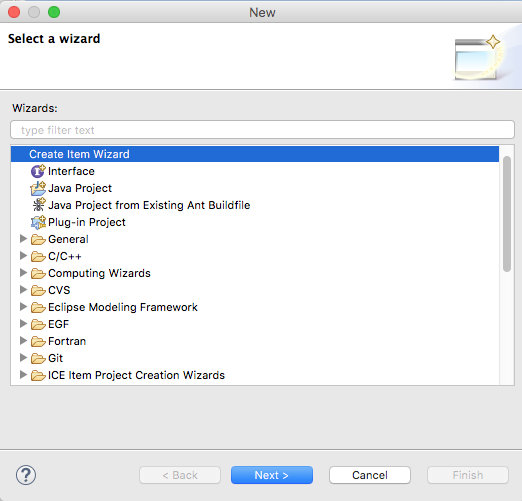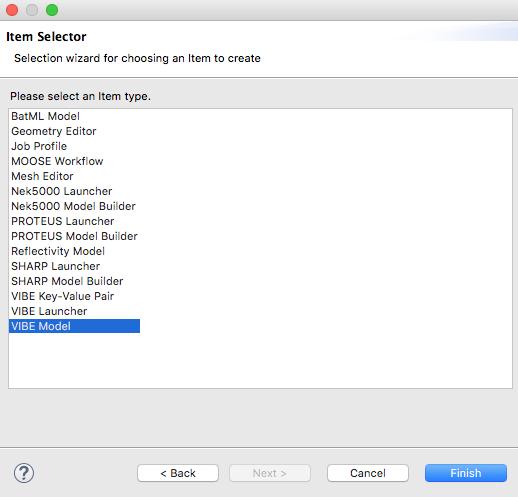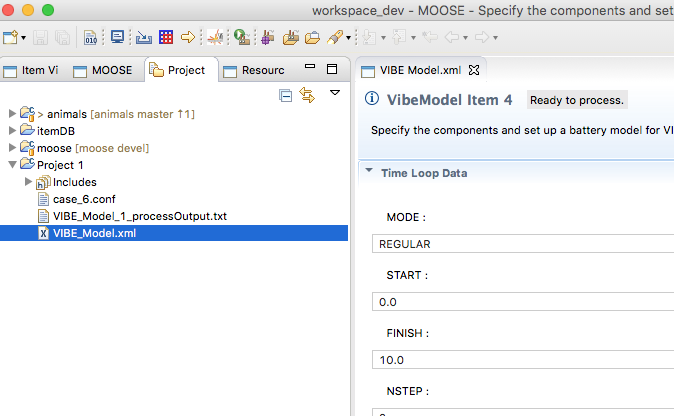Notice: This Wiki is now read only and edits are no longer possible. Please see: https://gitlab.eclipse.org/eclipsefdn/helpdesk/-/wikis/Wiki-shutdown-plan for the plan.
Using VIBE with ICE
Contents
Introduction
ICE provides three items that can be used to configure and run Virtual Integrated Battery Environment (VIBE) simulations:
- VIBE Key-Value Pair – Allows the user to specify variable values in a simulation. This item is optional.
- VIBE Launcher – Runs the specified simulation.
- VIBE Model – Allows the user to configure the simulation setup parameters.
Creating a VIBE Model
To select one of these items from the list of available plugins in ICE, click the Create an Item button (stylized as a "+") in the "Item Viewer" view pane/tab.
This will present the user with a dialog that lists available ICE plugins (including three VIBE-related items), as shown below.
To start, the user should select the VIBE Model item and click Finish. This will open the "VIBE Model" form.
In this initial example, the "VIBE Model" form (pictured below) will be populated with the information for the default "VIBE Model" case, which is suitable for this tutorial.
Advanced users can customize the variables in this form to suit their use case.
Select Export to VIBE INI format from the combo box, and click Go! to write the input file.
Creating a VIBE Launcher
The next step is to add the "VIBE Launcher" item to the workflow.
Just as before, click the Create an Item button (stylized as a "+") in the "Item Viewer" view pane/tab.
This time select VIBE Launcher from the list and click Finish. This will open the "VIBE Launcher" form.
The "VIBE Launcher" form (pictured below) will be populated with the information for the default "VIBE Launcher" case, which is suitable for this tutorial.
The "VIBE Model" form's output should have resulted in a *.conf input file that should be saved in the default ICE development directory—the input file is called VIBE_Model_1.conf in this case.
To locate the input file, the user can select Browse... if the file is not automatically populated in the "Input File" combo box, as pictured above.
Running the Simulation
To run the simulation, save the item (File > Save) and then click Go!
Adding VIBE to an Existing Project
VIBE items can also be created within an existing project.
In the "Project Explorer" view pane, right click on the project and choose New > Other. This action will prompt the "Select a Wizard" dialog.
From the "Select a Wizard" dialog, select Create Item Wizard and click Next.
Next, select VIBE Model and click Finish.
The VIBE Model is now visible in the "Project" view pane.
Other VIBE items can be added to a project by going through the steps outlined above. The user can also execute their simulations from within their project.

